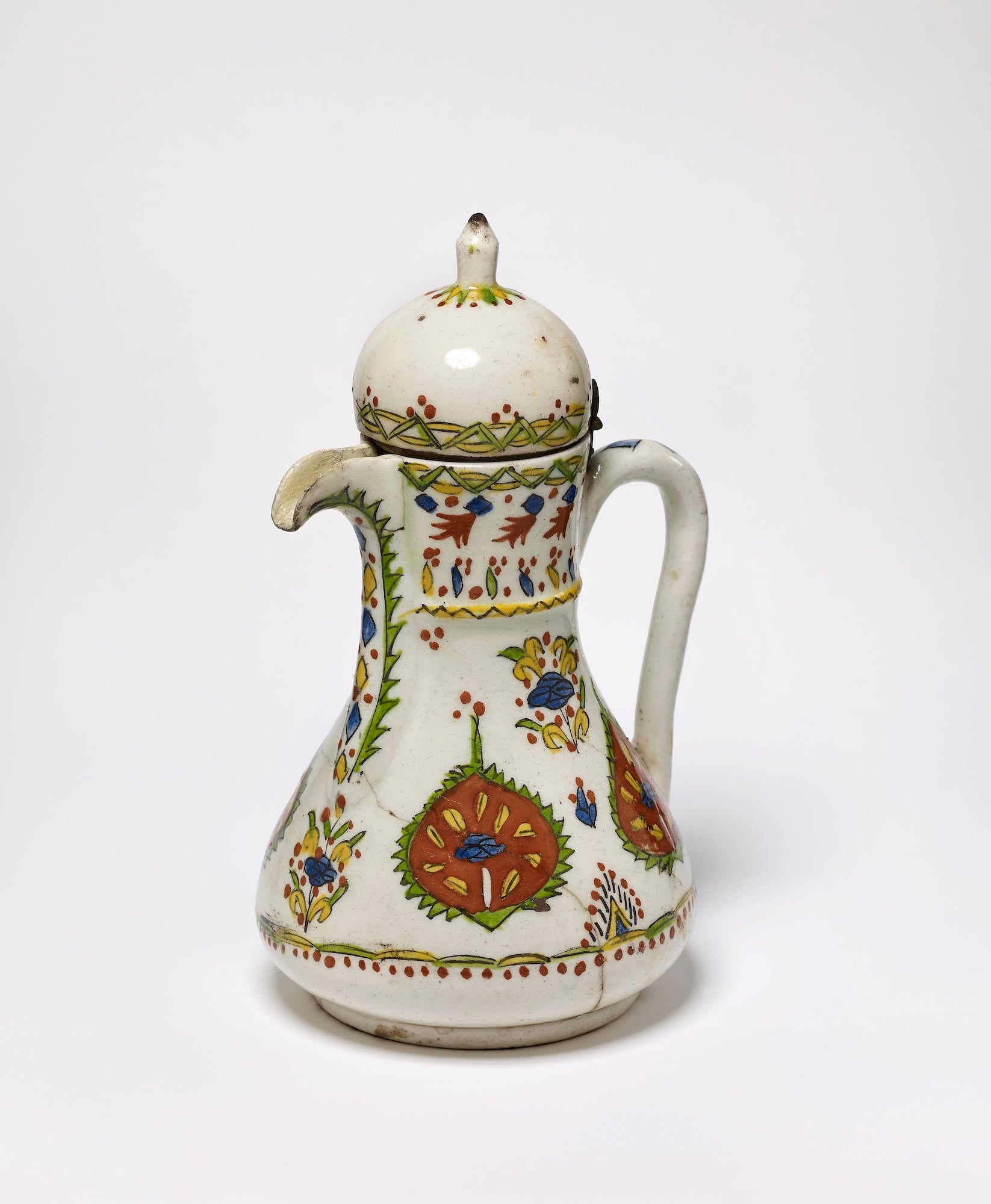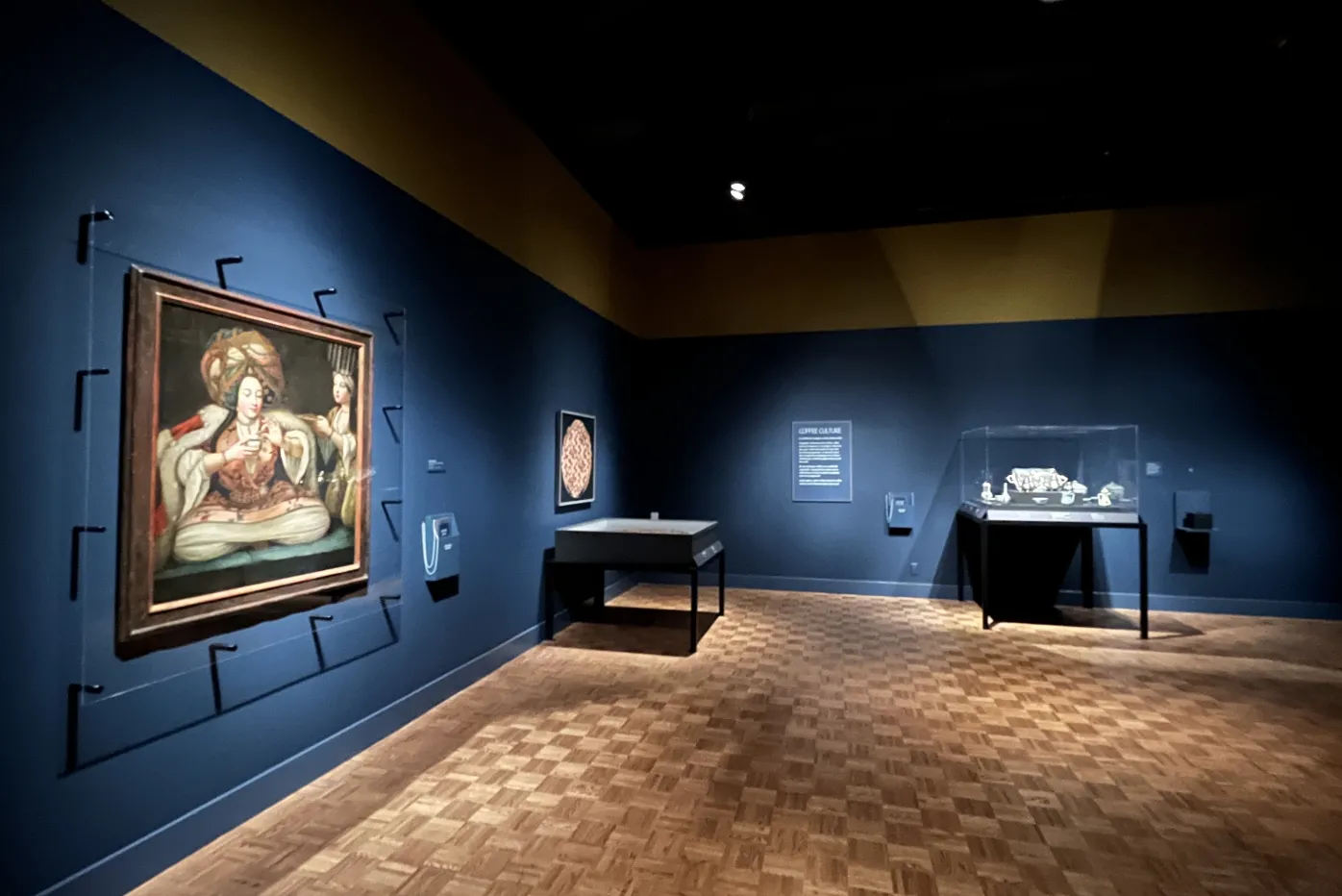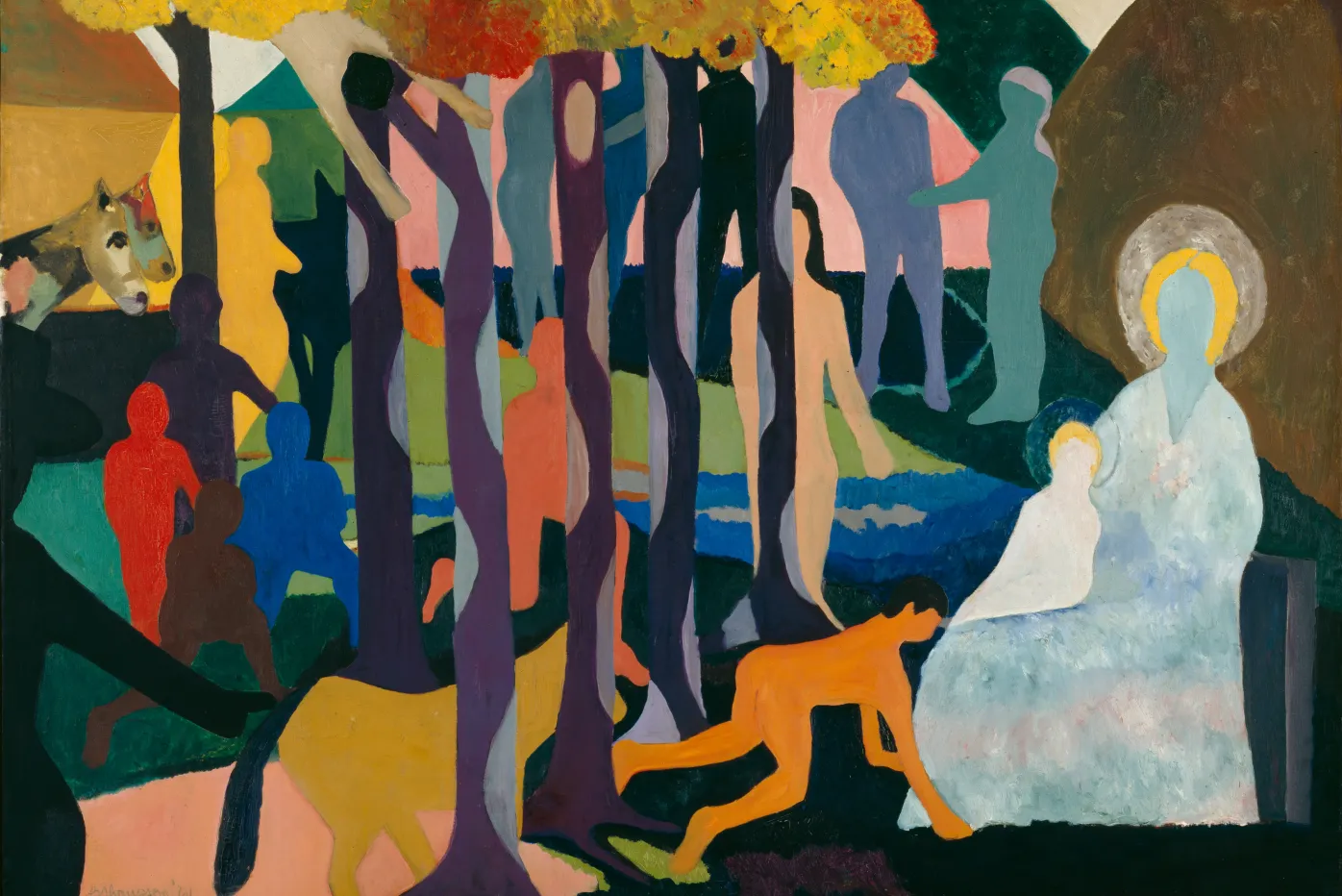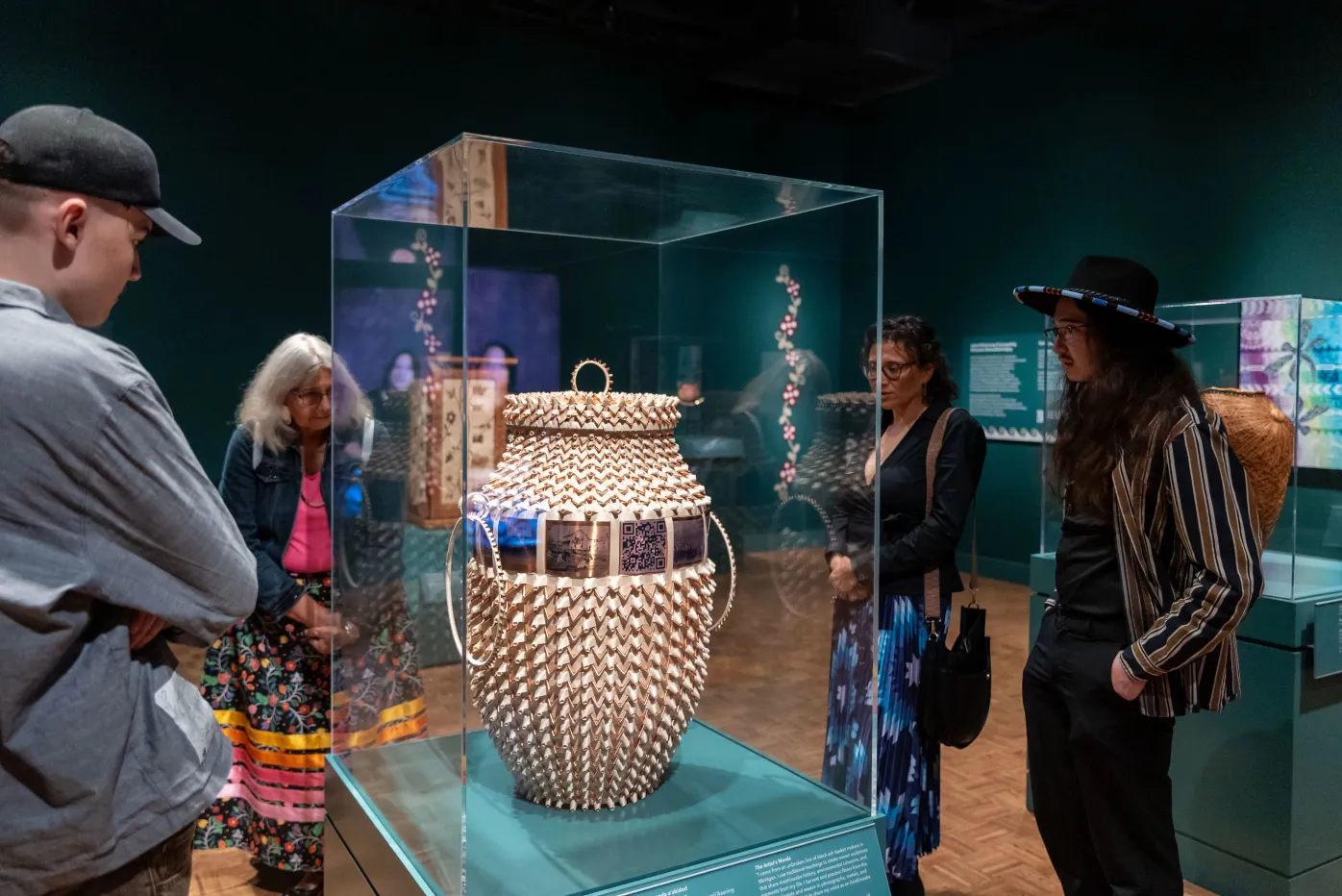Coffee culture isn’t an invention of the twentieth century. For hundreds of years, people around the world have started their day at home with a cup of fresh, fragrant brew, or met up with friends for caffeination and conversation. But the origins of the beverage, and the culture that developed around it, are in the Islamic world — a point made clear in the Detroit Institute of Arts’ exhibition The Art of Dining: Food Culture in the Islamic World, which dedicates an entire section to this one food experience. While the items in that gallery are mostly Turkish, they show how coffee, in a relatively short time, became a global cultural force.
Coffee was originally cultivated in East Africa but was first consumed as a beverage in Yemen in the 1400s. In the 1500s, Yemeni Sufis brought it to Mecca and the drink became popular throughout the Islamic world. In Turkey and elsewhere in the Ottoman empire, coffee culture was widespread by the mid-1500s, and by the 1600s was as popular as it is today.

Turkey (Kütahya). Coffee Pot, 1700s. Underglaze-painted fritware. The British Museum, London, Bequeathed by John Henderson, 1878,1230.554. © The Trustees of the British Museum
In the exhibition’s coffee section, objects include coffeepots, cups, and tray covers for presenting coffee sets, including several 18th-century Turkish coffee pots, cups and saucers and a coffee and tea set from the Ottoman Empire. A scent box with the aroma of coffee is available for visitors to sniff, rounding out the gallery visit with some sensory stimulation.
In the Ottoman Empire, offering coffee to guests became an important part of hospitality. Coffee also created its own public culture, as cafes sprang up where men gathered to talk, share news, and enjoy entertainment. The roots of coffee culture — specifically, its origins in Yemen — are particularly important in metro Detroit, where people of Yemeni descent have sought to “blend the ancient tradition of Yemeni coffee and the modern U.S. market of high-end organic coffee,” according to a Detroit News article chronicling the boom of Yemeni coffee shops in southeastern Michigan and beyond.
Ibrahim Alhasbani is the founder and owner of Qahwah House, a chain of Yemeni coffee houses that opened its first location in Dearborn in 2017. Born in Yemen, he’s the eighth generation to work in the world of coffee and recalls watching his mother make the family’s daily drink from beans she roasted fresh every morning.
Qahwah House has worked closely with the DIA during The Art of Dining, serving their Adeni Chai drink in Kresge Court through the end of the exhibition, and promoting the show in its southeastern Michigan cafes via custom cup sleeves. Qahwah House also took part in the DIA’s Nov. 16 event Spiced Stories: A Celebration of Islamic Coffee, Tea, and Cooking, which brought live music, delicious food and drink, and presentations about cooking culture to the museum.
Alhasbani believes passionately in the role that places like Qahwah House fill in the community; creating relaxed, family-friendly, all-ages spaces where people are encouraged to linger and mingle without having to spring for a pricey meal or be legally old enough to buy a drink. “If you’re young and just want to meet your friends, or if you don’t want to eat at a restaurant or a bar, where are you going to go?” he says. “This is a place for everyone. People come from all different backgrounds here, and they sit next to each other and enjoy being social. This is how we get to know each other.”
A visit to any Qahwah House location bears that out; there are professionals on laptops and students working on projects alongside friends getting together, families meeting up, and lively conversations happening between tables — all over cups of Yemeni coffee and tea drinks, and often late into the evening.
For Alhasbani, it’s reminiscent of the world he grew up in. “Coffee actually is a part of our culture,” he says, consumed throughout the day, for all occasions. “Of course you start your day with coffee,” he says. “But if you go to visit someone, you drink coffee. If it’s after a meal, you drink coffee. If someone comes to you, you serve them coffee. It's very, very special, especially for a Yemeni.”
Alhasbani is meticulous about the making of Qawah House’s drinks; for the first six months, he made each drink himself. And, as might be expected, he has strong opinions on the best way to enjoy coffee: "If you want to know the quality of the coffee, you have to try it black. Don't add milk or sugar or roast it extra dark; that takes the flavor. Drink medium roast, just black, and you will taste the whole flavor. This is the only way, if you want to enjoy a cup of coffee.”
However you take your coffee (or chai), don’t miss The Art of Dining, the DIA’s glorious celebration of food culture in the Islamic world, before it closes Jan. 5!



